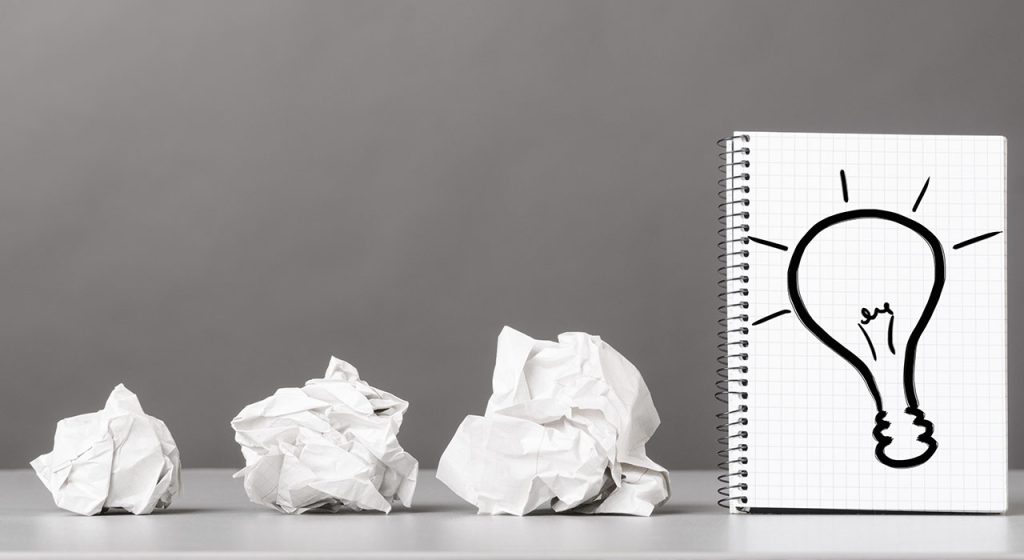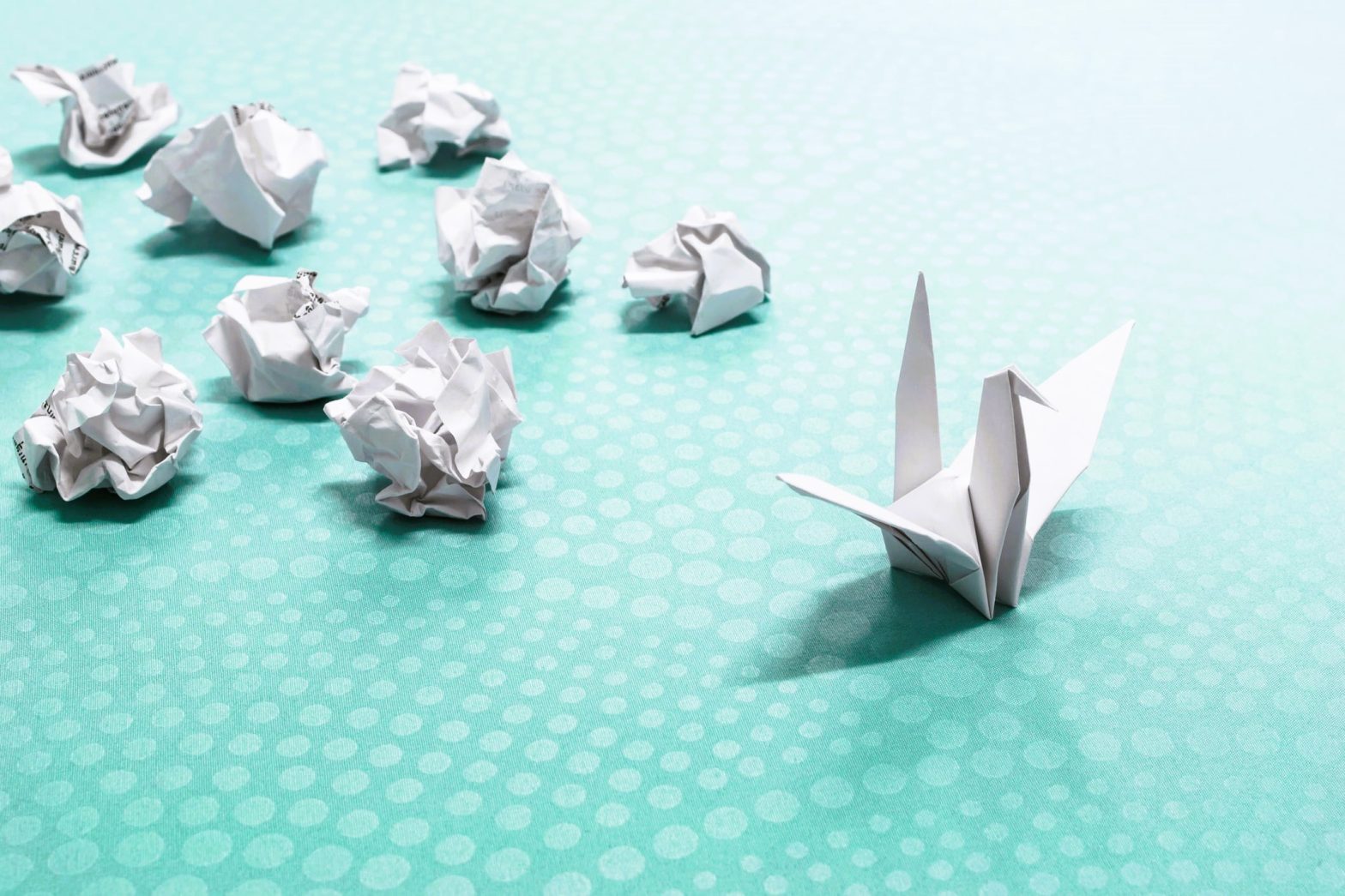Have you ever made a mistake that you regretted? Maybe you failed an exam, missed a deadline, or said something you shouldn’t have. How did you feel afterwards? Did you learn anything from your mistake, or did you just want to forget it and move on?
If you are like most people, you probably don’t enjoy making mistakes. You may even avoid taking risks or trying new things for fear of failing. But what if I told you that making mistakes is actually good for you? That it can help you learn, grow, and achieve your goals?
In this blogpost, I will show you why making mistakes is good for you: the science and psychology of learning from failure. I will explain why learning from failure is hard, but also how it can be done effectively with some science-based techniques. I will also share some examples of successful people who learned from their failures and achieved great things.
By the end of this blogpost, you will have a better understanding of how to embrace failure as a valuable source of feedback and motivation, rather than a sign of weakness or incompetence. You will also learn how to cultivate a growth mindset that allows you to see challenges as opportunities to improve yourself and your skills.
Why learning from failure is hard?
Discuss the emotional and cognitive barriers to learning from failure
Explain how failure can trigger negative emotions, self-doubt, and information-avoidance
Explain how failure can challenge our beliefs, goals, and identity

Here is a possible exploration of why learning from failure is hard:
Learning from failure is not as easy as it sounds. It requires us to face our mistakes and learn from them, rather than avoid or deny them. But why is that so hard? What are the barriers that prevent us from learning from failure?
According to a recent paper by Eskreis-Winkler and Fishbach, there are two main reasons why learning from failure is hard: emotional and cognitive.
Emotional barriers refer to how failure affects our feelings and self-esteem. Failure can trigger negative emotions such as anger, sadness, fear, guilt, or shame. These emotions can make us feel bad about ourselves and our abilities. They can also make us want to avoid or ignore failure, rather than confront it and learn from it. For example, we may blame others or external factors for our failure, rationalize our mistakes, or withdraw from challenging situations.
Cognitive barriers refer to how failure affects our thinking and reasoning. Failure can challenge our beliefs, goals, and identity. It can make us question our assumptions, expectations, and values. It can also make us doubt our competence and potential. These challenges can make us resist or reject failure, rather than accept it and learn from it. For example, we may deny or distort the evidence of our failure, stick to our old ways of doing things, or give up on our aspirations.
These emotional and cognitive barriers can interfere with our ability to learn from failure effectively. They can prevent us from paying attention to the feedback that failure provides us with3, analyzing the causes and consequences of our mistakes4, and experimenting with new strategies and solutions4. As a result, we may miss out on valuable opportunities to improve ourselves and our performance.
So how can we overcome these barriers? How can we learn from failure more effectively? In the next section, I will introduce some science-based techniques that can help you do just that.
How to learn from failure effectively
- Introduce some science-based techniques to overcome the barriers to learning from failure
- Explain how to strengthen the ego by seeking negative role models and positive feedback
- Explain how to hold a clear long-term goal in mind and practice mindfulness
In the previous section, I explained why learning from failure is hard. I discussed the emotional and cognitive barriers that prevent us from learning from failure effectively. In this section, I will introduce some science-based techniques that can help you overcome these barriers and learn from failure more effectively.
These techniques are based on the idea of developing a growth mindset . A growth mindset is a belief that your abilities and skills can be improved through effort and learning. A growth mindset helps you see failure as a valuable source of feedback and motivation, rather than a sign of weakness or incompetence. It also helps you see challenges as opportunities to improve yourself and your skills.
Here are some of the techniques that can help you develop a growth mindset and learn from failure effectively:
- Strengthen your ego by seeking negative role models and positive feedback. Negative role models are people who have failed in similar ways as you have, but have learned from their mistakes and achieved success. Positive feedback is praise or encouragement that focuses on your effort, progress, or strategy. These sources of social comparison and support can help you boost your self-esteem and confidence after a failure. They can also inspire you to learn from your mistakes and pursue your goals.
- Hold a clear long-term goal in mind and practice mindfulness. A clear long-term goal is a specific and meaningful objective that you want to achieve in the future. Mindfulness is a state of awareness and attention to the present moment. These practices can help you focus on your purpose and values after a failure. They can also help you cope with negative emotions and thoughts that may arise from failing.
- Analyze failures systematically and learn from others’ mistakes. A systematic analysis of failures is a process of identifying the causes, consequences, and solutions of your mistakes. Learning from others’ mistakes is a process of observing how other people have failed in similar situations as yours, and what they have done to overcome them. These methods can help you gain valuable insights and lessons from your failures. They can also help you avoid repeating the same mistakes in the future.
By applying these techniques, you can learn to embrace failure as a valuable source of feedback and motivation. You can also learn to cultivate a growth mindset that allows you to see challenges as opportunities to improve yourself and your skills.
But don’t take my word for it. Let me show you some examples of successful people who have learned from their failures and achieved great things.
Examples of successful people who learned from failure
-
- Share some stories of famous or inspiring people who failed before they succeeded
- Highlight how they used their failures as opportunities to learn and improve themselves
- Emphasize how they developed a growth mindset that helped them cope with challenges and setbacks
In this section, I will show you some examples of successful people who have learned from their failures and achieved great things.
These examples are not meant to be exhaustive or definitive. They are just a few illustrations of how failure can be a catalyst for success, rather than an obstacle. They are also meant to inspire you and encourage you to see failure as an opportunity, rather than a threat.
Here are some of the examples:
Mark Cuban learned he only had to be right once. Mark Cuban is a billionaire entrepreneur, investor, and owner of the Dallas Mavericks NBA team. He started his career as a salesman for a software company, but was fired after closing a deal without his boss’s approval1. He then started his own company, MicroSolutions, which he sold for $6 million in 19901. He then invested in an online streaming service called Broadcast.com, which he sold to Yahoo for $5.7 billion in 19991. He later said: “I’ve learned that it doesn’t matter how many times you failed. You only have to be right once.”1
J.K. Rowling learned that failure gave her the freedom to pursue her art. J.K. Rowling is one of the most successful authors of all time, best known for creating the Harry Potter series. She started writing Harry Potter when she was a single mother living on welfare in Edinburgh1. She faced many rejections from publishers before finding one who agreed to publish her book1. She later said: “Failure meant a stripping away of the inessential. I stopped pretending to myself that I was anything other than what I was and began to direct all my energy into finishing the only work that mattered to me.”1
Abraham Lincoln learned that failure is only temporary. Abraham Lincoln is widely regarded as one of the greatest presidents of the United States, who led the country through its civil war and abolished slavery. He faced many failures and setbacks before becoming president2. He lost several elections, failed in business, suffered a nervous breakdown, and endured personal tragedies2. He later said: “My great concern is not whether you have failed but whether you are content with your failure.”2
These are just some of the examples of successful people who learned from their failures and achieved great things. They show us that failure is not something to be feared or avoided but something to be embraced and learned from.
Conclusion- Summarize the main points and takeaways of the blogpost
- Reinforce the benefits of learning from failure for personal and professional growth
- Encourage the reader to apply the techniques and tips in their own lives
In conclusion,
Failure is hard but learning from it may be harder.
Learning from failure requires us to overcome emotional and cognitive barriers that prevent us from learning effectively.
Learning from failure can be done effectively with some science-based techniques that help us develop a growth mindset.
Learning from failure can lead us to success if we use it as a source of feedback and motivation.
I hope this blogpost has helped you understand why making mistakes is good for you: The science and psychology of learning from failure.
